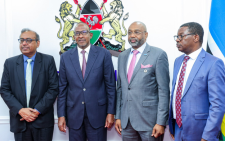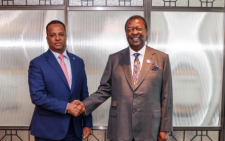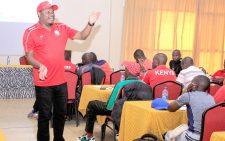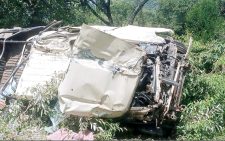Funding politics in the US likely to trigger ARV shortage in Kenya
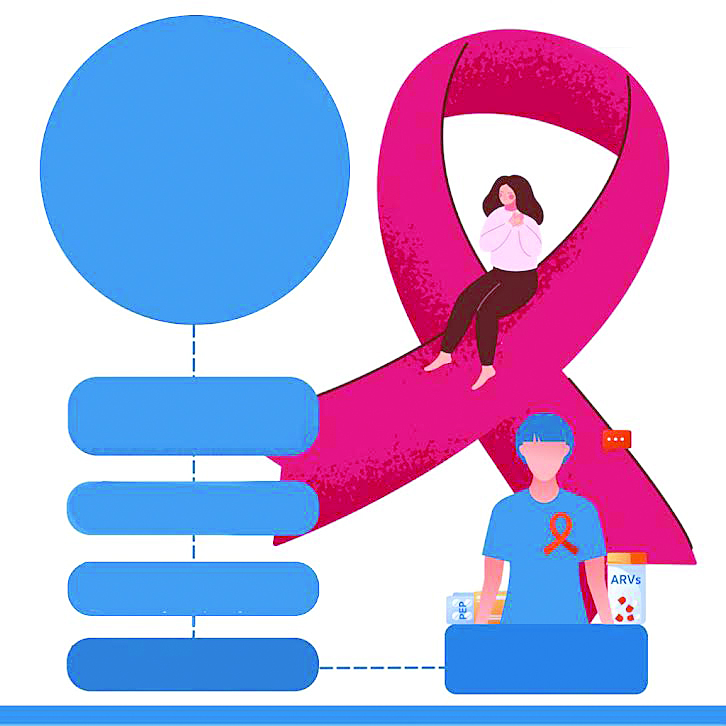
More than 1.5 million people living with HIV/Aids face a break future due to the delays of reauthorisation of US President’s Emergency Plan for Aids Relief (PEPFAR), which contributes to more than 50 per cent of total HIV/Aids care funds in Kenya.
The debate on whether to reauthorise or not has been going on for a while now in the US Congress, and as the current funding comes to an end on September 30 this year, key stakeholders have expressed fears of damages to the progress made in combating HIV pandemic if the lawmakers fail to renew the funding.
Jedidah Maina, the Executive Director of Trust for Indigenous Culture and Health says failure to renew the funding will not only affect major strides made in combating HIV, but will mostly affect people whose lives depend on antiretroviral drugs (ARVs) and Kenyans in general.
“Any negative action by the US Congress will trickle down to 1.3 million people who are on ARVs in Kenya. Lack of this funding will result to a shortage of these drugs, because a huge percentage of ARVs are funded by PEPFAR,”she says.
Increased deaths
Due to shortage of the drug, which keeps the viral load down, Maina says the likeliness of new HIV infections shooting up is very high, since persons living HIV are likely to spread the virus to other people.
She adds; “ARVs also help in preventing mother to child transmission, the lack of it will be risking children born from mothers who are positive.”
Maina says increase of HIV-related deaths are also a possible result for the ongoing circus.
“While the lawmakers are debating on this funding, let them think of the number of people in developing countries who are likely to suffer from their actions,” she adds.
Maina notes that Kenya will have to look for other funding alternatives if the worst happens and the US lawmakers fail to renew the kit.
“Kenya cannot afford to fund itself or its HIV activities and, therefore, we are at risk. If If this happens, Kenya will have to increase its health budget from three per cent to 15 per cent, something that has been impossible for years,” she notes.
While the renewal of the funding has turned into a show of might between Democrats and Republican lawmakers, a letter to the US Congress by African political and religious leaders has been the basis of the delays to approve the programme, which will assure continuation of funds pumped into the developing countries to support HIV activities, such as accessibility of HIV testing, availability of ARVs among other critical services.
The June 23 letter written by leaders among them Members of Parliament (Mps) Peter Kaluma, Paul Katana, Farah Maalim, among others, as well as Catholic bishops led by Kisumu Archbishop Maurice Muhatia, among other African leaders says while the funding has assisted countries to prevent HIV/Aids and reduce its scourge, the same has been supporting programmes that affect “…Our core beliefs concerning life, family and religion”.
Norms, traditins and values
The letter signed by leaders from Kenya, Uganda, Zambia, Namibia, among other nations says the original strategy respected Africa’s core values and focused PEPFAR on protecting and preserving life by emphasising abstinence and responsible behaviours and practices.
“We want to express our concerns and suspicions that this funding supports so-called family planning and reproductive health systems and practices including abortion that violates our values. We ask that PEPFAR remain true to its original mission and respect our norms, traditions and values,” the letter reads.
The leaders want the organisations that have partnered with the US government in implementing the funding programmes to do so in ways that are cognisant and respectful of Kenya’s beliefs and not dare cross over into promoting divisive ideas and practices that are not consistent with those of Africa.
As a result, US lawmakers have spent months wrangling over whether Congress should reauthorise the programme for five years, for one year or not at all, a decision that experts warn has both practical and symbolic consequences.
The Republicans have been citing allegations that the programme’s funding is being used to indirectly support abortions, claims that health advocates, Democrats and PEPFAR officials say are baseless.
The Joe Biden administration had sought a “clean” five-year reauthorisation of the HIV programme, with no new policy restrictions, allowing Congress to quickly update the existing PEPFAR legislation without opening it back up to a lengthy debate.
However, the anti-abortion advocacy groups have warned the lawmakers against voting for the bill lest they risk being docked on the organisations’ scorecards, a key metric many Republicans use during their campaigns for reelection.
Here in Kenya, civil society terms the allegations by leaders as baseless and fictitious with no evidence.
Allan Maleche, the Executive Director at the Kenya Legal and Ethical Issues Network on HIV and Aids (KELIN) says the allegations are misinformed and, which are likely to jeopardise the funding reauthorisation.
False information
“The authors of the letter, our own Members of Parliament, are expressing baseless claims which would cost Kenya funding for services such as testing, diagnosing, prevention and, majorly, the dispensing of antiretroviral medicines,” he says.
Maleche notes it disheartening and unfortunate to witness the spread of false information regarding the use of PEPFAR’s to support abortion and other activities that allegedly disregards family values.
“These claims are detrimental to the progress we have made in combating the HIV epidemic. It is important to note that PEPFAR’s focus is on saving lives, promoting health, and upholding human rights, with a very limited mandate restricted to HIV care and management,” he noted.
Maleche says Non Governmental Organisations (NGOs) are guided by “Global Gag Rule”, which prohibits foreign NGOs that receive US Global health assistance from providing legal abortion services of referrals.
“The rule also bars advocacy for abortion law reforms, even if it is done with the NGO’s own, non-US funds. The policy allows access to abortion only in cases of rape, incest, or when a woman’s life is at risk. With such policy, it is impossible to commit the crime our leaders are accusing us of committing,” he notes.
The abortion debate
With the possibility of the allegations jeopardising the reauthorisation of the funding, close to 40 civil societies want the speaker of the National Assembly, Moses Wetangula, to clarify the issues with their US counterparts.
Maleche says it is now important for National Assembly Speaker Moses Wetangula and the parliament to distance themselves from the allegations and further, provide factual information to the US Congress on how PEPFAR has been utilised since its inception in 2003.
Maina says the speaker should demand for the lawmakers to table evidence of the funding being used to champion for abortion or any activities that are against African values.
“The MPs should be held accountable of endangering the lives of more than a million people who highly depend on PEPFAR,” she says.
PEPFAR is the world’s largest health programme devoted to HIV, a status that has helped the US achieve the dual goal of strengthening its diplomatic ties and boosting public health.
Spearheaded by President George W Bush, PEPFAR has spent in excess of USD$100 billion (Sh14.5 trillion) across more than 50 countries; distributed millions of courses of medicine to treat and prevent HIV; collected data that shed new light on the virus’s spread; and forged durable partnerships with local governments and organisations.
